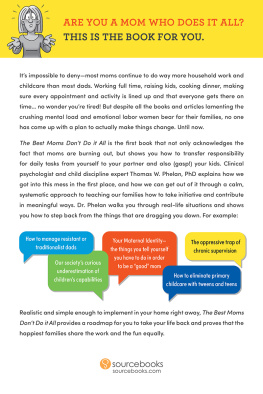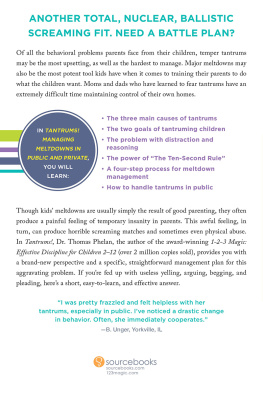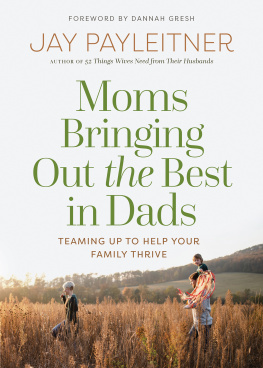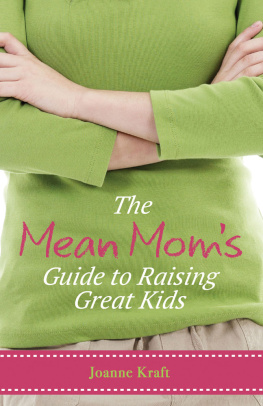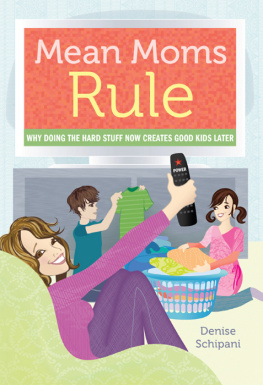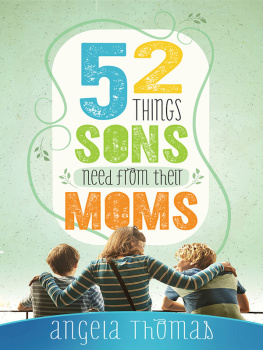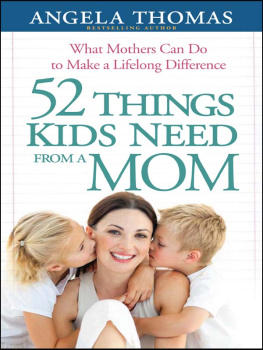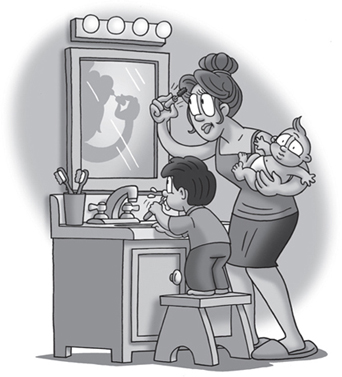

Copyright 2020 by Thomas W. Phelan, PhD
Cover and internal design 2020 by Sourcebooks
Cover design by Krista Joy Johnson
Sourcebooks and the colophon are registered trademarks of Sourcebooks.
All rights reserved. No part of this book may be reproduced in any form or by any electronic or mechanical means including information storage and retrieval systemsexcept in the case of brief quotations embodied in critical articles or reviewswithout permission in writing from its publisher, Sourcebooks.
This publication is designed to provide accurate and authoritative information in regard to the subject matter covered. It is sold with the understanding that the publisher is not engaged in rendering legal, accounting, or other professional service. If legal advice or other expert assistance is required, the services of a competent professional person should be sought. From a Declaration of Principles Jointly Adopted by a Committee of the American Bar Association and a Committee of Publishers and Associations
All brand names and product names used in this book are trademarks, registered trademarks, or trade names of their respective holders. Sourcebooks is not associated with any product or vendor in this book.
Published by Sourcebooks
P.O. Box 4410, Naperville, Illinois 60567-4410
(630) 961-3900
sourcebooks.com
Library of Congress Cataloging-in-Publication Data
Names: Phelan, Thomas W., author.
Title: The manager mom epidemic: how American moms got stuck doing everything for their families and what they can do about it / Thomas W. Phelan, PhD.
Description: Naperville, IL: Sourcebooks, [2019] | Includes bibliographical references and index. | Summary: The solution to the overload many modern moms feel, The Manager Mom Epidemic shows you how to build a happier family by firing yourself from the house manager position and making each member of the family, from your husband to your youngest child, feel responsible for helping make family life run smoothly.
Identifiers: LCCN 2019027899 (trade paperback)
Subjects: LCSH: Mothers--United States. | Families--United States. | Housekeeping--United States. | Work and family--United States. | Child rearing--United States.
Classification: LCC HQ759 .P4725 2019 | DDC 306.874/3--dc23
LC record available at https://lccn.loc.gov/2019027899
CONTENTS
INTRODUCTION
Do You Feel Like the Family Nag?
Do you enjoy being the family nag? Im sure you dont. But over the course of forty years working with families, Ive observed a huge number of mothers (both those who work outside the home and those who dont) who spend most of their time every day managing the logistics of their familiesshopping for and cooking meals, cleaning up, helping with homework, scheduling appointments, reminding their children and husbands to go to those appointments It seems never-ending. Why do these moms take on all this work? Because they feel like if they dont do it, no one willand the day-to-day functioning of the family will fall apart.
Does this sound like you? If so, youve come to the right place. Many American families are living with a condition I call the Manager Mom Syndrome, which is just what I described above: a household run almost exclusively by Mom. Why is that a bad thing? Well, Mom is tired. Mom is overwhelmed. Mom has her own life to live, and maybe she would like to do something with her free time other than attend to the details of her family members lives.
Before we go any further, I must acknowledge that not every American family consists of the mom/dad/kids framework I use as the basis of this book. Many families are run by single parents. Many others are run by two women or by two men. Many families are formed through adoption, fertility assistance, or some other plan other than biological conception between two married, heterosexual adults. The diversity of the families in our country is something to be recognized and celebrated, and I hope that every type of parent finds something useful to take away from The Manager Mom Epidemic . The content of this book is driven by normative data of large populations, which overwhelmingly shows that families headed by heterosexual parents fall into a pattern in which the woman handles the majority of the daily responsibilities. Much has been written in the past several years about the mental load or emotional labor that is borne by mothers, and this book is a contribution to that conversation. If you are a father who finds himself shouldering the majority of the burden, or you are in a same-sex relationship, I hope the concepts and takeaways of this book help you create a happier, more equal family, and that the language used throughout for convenience doesnt stand in the way of the benefits this book strives to provide.
So, what is the Manager Mom Syndrome? It is an unwitting conspiracy between Mom, Dad, and the kids, who all believe that, in general, if the work of running the household is going to get done now and get done right , Mom has to do it. The good news is that this belief isnt true, and the happiest families share the work and the fun equally without too much of the burden falling onto any single person.
So if youre tired of being the one who always schedules the dentist appointments, buys presents for birthday parties, and handles the emotional labor of remembering, planning, scheduling, reminding (and reminding again), its time to fire Manager Mom. Lets get started!
What Does the Manager Mom Syndrome Feel Like?
Ella: Im so tired! I have to do everything by myself. I was up till eleven last night doing laundry, and that was after getting the kids to bed. My husband likes his alone time at night after working all day.
Hailey: Its 9:15 a.m. on a Saturday morning. Hailey has been up since 5:30 a.m. entertaining and feeding her two kids, two-month-old Carter and fourteen-month-old Owen. Husband Grant is still asleep, snoring peacefully. Hailey resolves that next week she is going to find more time for herself, one way or another. Will her husband want breakfast when he gets up? Why cant he get his own?
Aubrey: At least sixty times per day, Aubrey wonders whether or not she is a good mother. She remembers hearing a speaker once who mentioned a concept known as total motherhood. This was the idea that all the responsibilities for child-rearing rested solely on the shoulders of the mother of the house. Aubrey feels thats the way things are in her home. She has one child, five-year-old Taylor, but her husband spends time with the child only on the weekends, and thats mainly engaging in fun activitiesnot the childcare basics such as bathing, dressing, feeding, and so on.
Abigail: Id love to go out at night, but I cant imagine just being gone from home for three hours straight. And I can tell you this, Id feel really funny just announcing that Im leaving the house for a long time for the sole purpose of hanging out with a friend.
Kylie: Kylie is hunkered down at a motel just eight miles from her home. She told her family she was taking a week off and going on strike. She left her husband, eight-year-old daughter, and twelve-year-old son at home to fend for themselves. Kylie explained, while trying to suppress her resentment, that she was tired of being what she called the family gopher. Cook, babysitter, laundromat manager, picker-upper, toilet scrubber, scheduler, chauffeuryou name it. Secretly, Kylie hopes the family will feel an appropriate sense of guilt, come to appreciate all the services Mom has offered, and change their ways when she returns from her vacation.
Next page

